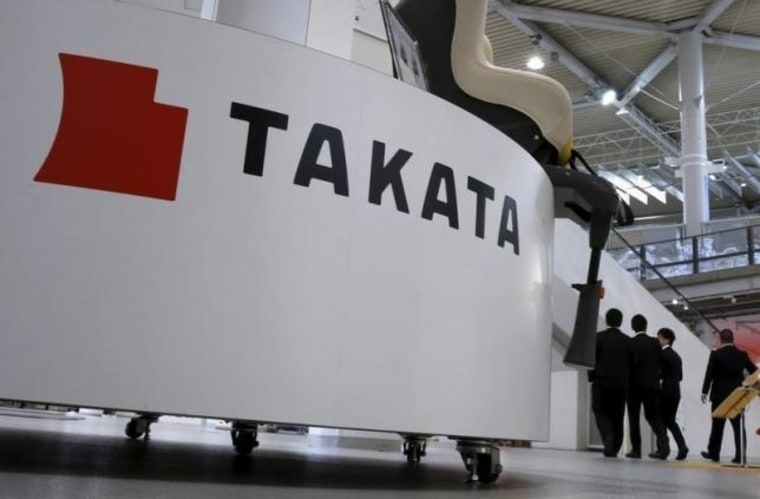The largest safety recall in automotive history is about to get even bigger, with federal regulators ordering embattled Japanese supplier Takata to recall as many as 40 million additional airbags linked to a defect already blamed for at least 11 deaths.
The previous recall involved about 24 million vehicles sold in the U.S. over roughly the last decade, with 14 manufacturers impacted. Virtually every other major carmaker will now be pulled into the latest recall.
Do you think your car might have Takata airbags? To find out, go to safercar.gov and enter your Vehicle Identification Number (VIN).
“This is the largest recall in American history," National Highway Traffic Safety Administrator Mark Rosekind told reporters on Wednesday.
Read More: Takata Airbags May Have Caused 2 More Deaths in Malaysia
But the precise number of vehicles that will be affected by the new recall order isn’t certain. For one thing, NHTSA has initially offered only a broad range, saying somewhere between 35 million to 40 million airbags are being targeted. And because some vehicles use more than one of the Takata devices, the total number of vehicles will likely be somewhat smaller.
Nonetheless, it is considered highly likely that the total number of cars, trucks and crossovers will now top the 50 million mark. And some observers estimate that up to a quarter of all the vehicles now on U.S. roads will ultimately be covered.
Part of the challenge will be coming up with replacement parts. Takata has been struggling to deliver the necessary airbag inflators to cover the earlier recall. Some vehicle owners have reportedly waited months for dealers to get the required parts. A few manufacturers, including Toyota and BMW, have turned to other parts manufacturers to try to speed up the process.
As of April 22, NHTSA reported just over 8 million vehicles had been fixed, or less than a third of those targeted by the first big recall ordered by the agency. NHTSA Administrator Rosekind’s own family owns a vehicle with a Takata airbag that has yet to be repaired.
The expanded service action comes a little more than a month after an 11th victim was killed in a Takata incident. Texas high school student Huma Hanif was involved in what police described as a relatively minor frontal collision. But when her Honda sedan’s airbag was triggered, the Takata inflator fired over-aggressively, sending shrapnel flying into the passenger compartment, killing the 17-year-old girl.
The latest announcement marks a significant shift in the Takata saga. For years, the supplier downplayed reports of problems. When it was clear there was a problem, the company blamed it on a manufacturing defect at two North American plants, insisting the issue was limited to vehicles operated in high humidity regions like southern Florida.
Read More: 90 Million More Takata Airbags May Face U.S. Recalls
NHTSA initially approved an unusual, regional recall, reversing itself when additional incidents were reported in drier climates.
A group of automakers using Takata inflators last year funded a panel to find the precise cause. They recently announced preliminary results. The researchers did note that excess humidity could play a role, but they also pointed to the explosive compound used in Takata inflators, ammonium nitrate. Some critics, including Clarence Ditlow, director of the Center for Auto Safety, continue to demand that all Takata airbags using that chemical be recalled.
Takata officials came under withering fire during Congressional hearings last year, and the company was also ordered to pay a $70 million fine — which could grow to $200 million if it misses targets laid out by NHTSA to improve its safety performance.
In a statement issued after Wednesday’s recall announcement, Shigehisa Takada, chairman and CEO of Takata, said, “This agreement with NHTSA is consistent with our desire to work with regulators and our automaker customers to develop long-term, orderly solutions to these important safety issues."
Read More: 10th Death Linked to Takata Airbags, New Recall Announced
“Our actions,” Takada said, “including the expansion of product recalls to cover all non-desiccated frontal inflator models, demonstrate our total commitment to safety and our intention to be part of the solution and to restore the confidence of the driving public.”
While the Takata incident has been a centerpiece of headlines in recent months, safety advocates note that there have been a number of other issues involving airbag problems in recent years. This past week alone, Nissan ordered the recall of nearly 4 million vehicles sold worldwide because of a sensor defect that could result in an airbag failing to deploy in the event of a crash.
